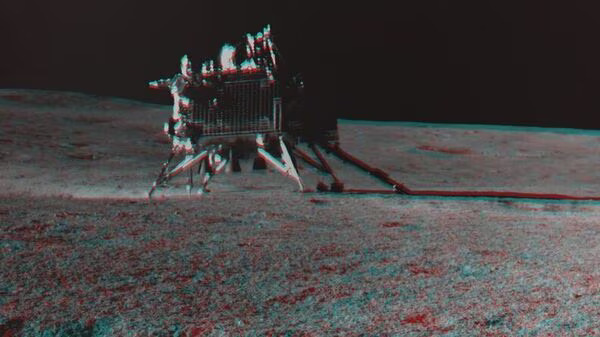A literature review is graphics, diagrams, and pictures if they aid in effectively presenting the findings and arguments of a secondary approach, graphs and diagrams can easily aid a writer to analyse or summarise the results of other authors about a subject.
Literature review
A literature review is to review the existing research or summary or prior study that is associated with your paper. It can be a portion of research or can generate a paper itself. The literature review for the former is made as a foundation on which your existing research is built and designed. The latter generates a synthesis of past research and is a method to highlight the future study plan or a framework. If any student needs further assistance they can take help from Literature Review Help Services.
Writing literature review
In a literature review, an individual must endeavor to discuss the findings and arguments in past research and then perform work to develop on such research as you generate your study. You can stress the association between prior and existing literature to show how the existing research you are demonstrating can improve your knowledge and information in the field (Bauer, et al., 2019).
When doing a literature review, an individual must intend to summarise her analysis using a particular aspect of the review, for example, findings, design/methodology, time, and topic. By performing this, the student should be capable to develop an effectual way to represent the relevant review and show the relation between past research and current research.
It is important to note that literature does not incorporate discussion or presentation of any findings or results, this must come after the literature review in the study or paper. Student must also not enforce their subjective opinions or viewpoints on the literature they discuss.
Critical review
A critical review is a widespread method to review existing and past research. It may discuss and cover the primary arguments or ideas in an article or book, or it can review a particular idea, theoretical perspective or theme, or main construct originating in current literature. The key aspect that identifies a critical review of literature is that past is more than only a summary of various methods or topics. The critical review provides more of a critique or reflection of the idea in question and also is involved by researchers to more evidently contextualise their study in the current literature and to demonstrate their approaches, perspectives, and opinions.
Provided that critical analysis is not only a summary of past research, generally, it is not measured acceptable to recognise a similar plan as for a literature review. Rather than, intend to structure and organise your critical analysis that would facilitate students to discuss the main ideas, assert your viewpoints and locate your research and arguments in the current body of the paper.
Writing a critical review
The debate in critical review would not summarise and present themes other than that it critically involves the differing perspectives, writings, and arguments in those themes. One fundamental thing to emphasis is that it is the same as a literature review, student must keep their dislikes, likes, and opinions out of the review.
Whether a student personally approves of an argument or study, whether you adore it or not, is irrelevant. As an alternative, the student must emphasis over the relevance and effectiveness of the arguments, focussing on such components as the proof given, the analysis and interpretations of the information, and whether or not research can be prejudiced in any way.
Making a structure for critical review
A critical review usually would commence with an introductory idea student would like to confer. Relying on how wider the topics are, it can only be an overview or it might arrange a more complicated framework. The arguments that follow from the rest of the analysis will then discuss and address selected topics or themes in more detail. The main procedure to follow in writing a review of literature is to search for relevant and authentic content, evaluate sources, explore gaps, debates, and themes, outline the structure and then write up the literature.
Reason to write literature review
Literature reviews offer students handy instructions on a specific topic. If the student has a limited period to gather research, it can provide a brief or act as a treading stone. For experts, they are effective reports that hold them state-of-the-art with what is present in the field. The breadth and depth of literature for scholars focus on the credibility and reliability of the researcher in their field. A literature review can also offer a piece of solid background information for the investigation of the research paper. Thorough knowledge of literature is important to different studies.
In literature, the student aims to provide and summarise the critical analysis regarding research arguments they have observed in their readings, with no any involvements in making the literature. Whereas conducting critical analysis, the researcher explores the substantial study in the field and assesses the literature grounded on contribution in the field. This type of review is often called conceptual or narrative. As in literature, there are no similar viewpoint procedures to recognise in conducting a critical review. Thus, there should be an extent of mastery to derive in the field for new ideas from existing literature.
Provided that the main literature for analysis in critical reviews are the foundation of research in the field besides critic is often very familiar with the field of research, the student can already have all the literature they need for this kind of analysis (DP, 2020). The common structure of critical review includes demonstrating the concepts within the original text accurately and assuring students to cover the key question the text tries to address. It discusses the fundamental aspects, as well as evidence the content uses to aid the conclusion and its arguments.
Importance to conduct a critical literature review
Conducting critical literature is crucial to develop a study idea, consolidate what is previously familiar about a field, and facilitate students to explore any information gaps and how their research might bring additional understanding. If an individual wants more information they can contact to What is Critical Literature Review for their further clarification. When a student is required to develop the critical review, they would require to perform two primary things; evaluate and summarise the content. The critical analysis can be of a journal article, chapter, or book.
Reference
- 2020. How long Should a Literature Review be in a 10000 Words Dissertation? AVAILABLE AT: https://www.dissertationproposal.co.uk/guide/how-long-should-a-literature-review-be/
Bauer, J.M., Cruz-Jentoft, A.J., Fielding, R.A., Kanis, J.A., Reginster, J.Y., Bruyère, O., Cesari, M., Chapurlat, R., Al-Daghri, N., Dennison, E. and Kaufman, J.M., 2019. Is there enough evidence for osteosarcopenic obesity as a distinct entity? A critical literature review. Calcified tissue international, 105(2), pp.109-124.





